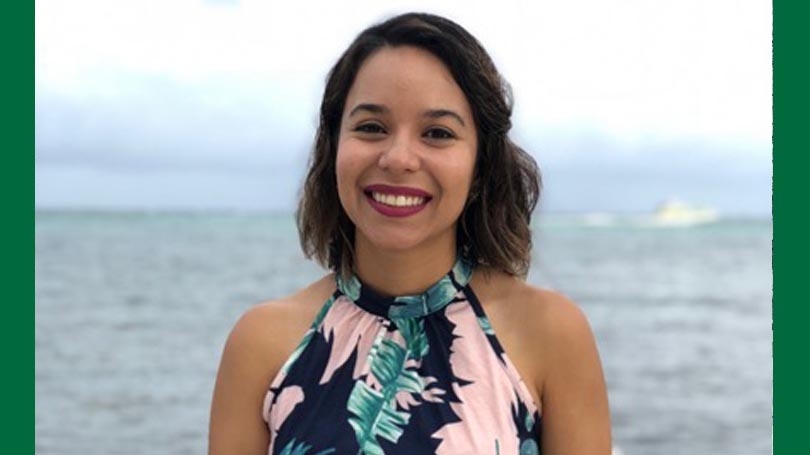
Introducing Lily Kabeche, the new Guarini School of Graduate and Advanced Studies representative to the Dartmouth Alumni Council
Since its founding over a century ago, the Alumni Council has acted as a clearinghouse for alumni sentiment and ideas, maintained a relationship with the Board of Trustees of the College, and served as the official communications channel between alumni and the administration. Its members are drawn from affiliated groups, faculty, class and club officers as well as graduate and professional schools, so it is possible to be represented by more than one, depending on which constituencies you belong to.
Meet Lilian Kabeche, Guarini ’13 (MCB), who represents the Guarini School of Graduate and Advanced Studies to the Dartmouth Alumni Council. Lily assumed this role in 2018, and will continue through 2021, and serves as liaison between graduate alumni and the Council, communicating concerns from alumni to the Council as well as disseminating information from the Council to alumni. She also seeks to facilitate relationships between Guarini School graduate alumni and the Dartmouth leadership.
Lily arrived at Dartmouth in 2008 as a freshly-minted Bachelor of Science in Microbiology and Immunology from the University of Miami, Coral Gables, Florida, full of enthusiasm for studying pathogens and their treatment. She had spent the previous year working as an undergraduate research assistant to Dr. Arba Agar, studying chemotherapies to treat malaria in mice. During her first-year rotation through lab groups in the Molecular and Cell Biology (MCB) Program at Dartmouth, she was drawn to the beauty of chromosomes segregating during cell division in a talk by Duane Compton (now Dean of the Geisel Medical School at Dartmouth). Lily soon started down a professional path of studying cell division, with applications to cancer treatment, by selecting Compton as her dissertation advisor and joining his lab group.
Donning her trademark bubblegum-pink lab coat, Lily made quick progress in her research. Her dissertation focused on the mechanisms of mitosis (cell division) and the differences between cancer cells and diploid cells—those which make up most of the human body and have a full set of chromosomes. She found that a protein known as Mad2 regulates both the spindle checkpoint as well as the stability of kinetochore-microtubules, promoting proper segregation of chromosomes during mitosis. She also found that an essential cell cycle protein—cyclin A—regulates the segregation of chromosomes during mitosis, leading to a publication in Nature which was highlighted by the Association of American Medical Colleges. Lily’s work as a graduate student was decorated with honors from the American Society for Cell Biology, including the Beckman Coulter Distinguished Graduate Student Achievement Prize and a travel fellowship to the National Institutes of Health.
After receiving a PhD in Biochemistry in 2013, Lily continued work at Dartmouth for two years as a postdoctoral fellow—one year continuing projects in the Compton lab, and one year in Scott Gerber’s lab group at the Norris Cotton Cancer Center studying how missegregation of chromosomes during cancer cell division leads to drug resistance. In 2015, Kabeche moved to Boston to start work as a postdoctoral fellow at Massachusetts General Hospital, studying the non-canonical roles of the DNA damage repair pathway in mitosis. She has found time to teach cellular and molecular biology lab courses at Emmanuel College in Boston while continuing her research at Mass General.
Lilian Kabeche serves on the Academic Affairs and Young Alumni committees within the Dartmouth Alumni Council. The next Alumni Council meeting will be May 16-18, 2019. Lily can be reached at Lilian.C.Kabeche.GR@dartmouth.edu